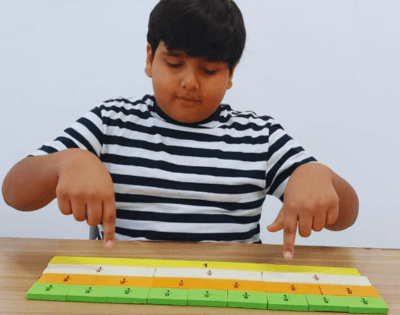Parenting is both a joyous journey and a challenging adventure. As parents, you will constantly be facing decisions that shape the upbringing of our children and one of the most significant decisions to make is the parenting style.
With a plethora of approaches to choose from, each with its own strengths and weaknesses, it can be overwhelming to determine which one is best suited for our family dynamics.
In this blog, we’ll explore the different types of parenting styles, drawing insights, to help you discover which style aligns with your values and goals.
Understanding Parenting Styles:
Psychologists have identified several distinct parenting styles, each characterised by varying levels of control and warmth. These styles serve as frameworks that influence how parents interact with their children and establish rules and expectations. The four primary parenting styles are:
- Authoritative Parenting:
Authoritative parents are nurturing and responsive while also setting clear expectations and boundaries. They value open communication and encourage independence.
Studies have consistently shown that authoritative parenting fosters positive outcomes in children, including higher self-esteem, better academic performance, and improved social skills
For example: Sam is an authoritative parent, maintains a balance between warmth and discipline. She listens to her children’s opinions while also providing guidance and structure.

- Authoritarian Parenting:
Authoritarian parents prioritise obedience and discipline, often employing c and punishments. They may lack warmth and flexibility, emphasising control over nurturing.
While authoritarian parenting may lead to immediate compliance, it can also result in negative consequences such as rebellious behaviour, low self-esteem, and anxiety in children.
For example: David, an authoritarian parent if he imposes strict rules without room for negotiation. While his children comply out of fear, they often feel disconnected from him emotionally.

- Permissive Parenting:
Permissive parents are lenient and indulgent, placing few demands on their children and avoiding confrontation. They prioritise their children’s happiness over discipline.
Permissive parenting can lead to children lacking self-discipline, struggling with authority figures, and experiencing behavioural issues.
For Example: Justin is a permissive parent who avoids conflict by giving in to her children’s demands. While her children appreciate the freedom, they struggle with boundaries and responsibility.

- Uninvolved Parenting:
Uninvolved parents are emotionally distant and detached, providing minimal guidance and support to their children. They may be neglectful or indifferent to their parenting responsibilities.
Uninvolved parenting is associated with a host of negative outcomes for children, including poor academic performance, behavioral problems, and emotional instability.
For Example: Michael is an uninvolved parent if he is often absent both physically and emotionally from his children’s lives. His lack of involvement leaves his children feeling neglected and unsupported.

Choosing the Right Parenting Style:
Finding the right parenting style for your family requires careful consideration of your values, beliefs, and parenting goals. While each style has its pros and cons, there is no one-size-fits-all approach. Here are some tips to help you navigate this decision:
- Reflect on Your Parenting Philosophy: Consider what values and principles are important to you as a parent. Are you more focused on fostering independence or maintaining control? Understanding your parenting philosophy will guide your approach.
- Assess Your Child’s Needs: Every child is unique, with their own temperament, strengths, and challenges. Take into account your child’s personality and developmental stage when determining which parenting style will best support their growth and well-being

- Be Open to Adaptation: Parenting is a dynamic process that requires flexibility and adaptability. Be willing to adjust your approach as your child grows and circumstances change.
- Seek Support and Resources: Don’t hesitate to seek guidance from parenting books, support groups, or professional counsellors. Learning from others’ experiences and expertise can provide valuable insights and reassurance.
Parenting is a journey filled with ups and downs, successes and challenges. By exploring the different types of parenting styles and considering their implications, you can make informed decisions that nurture your child’s development and strengthen your family bonds. But you must know that there is no one “right” way to parent, but by understanding your own values and your child’s needs, you can find a style that works best for your unique family dynamic.




